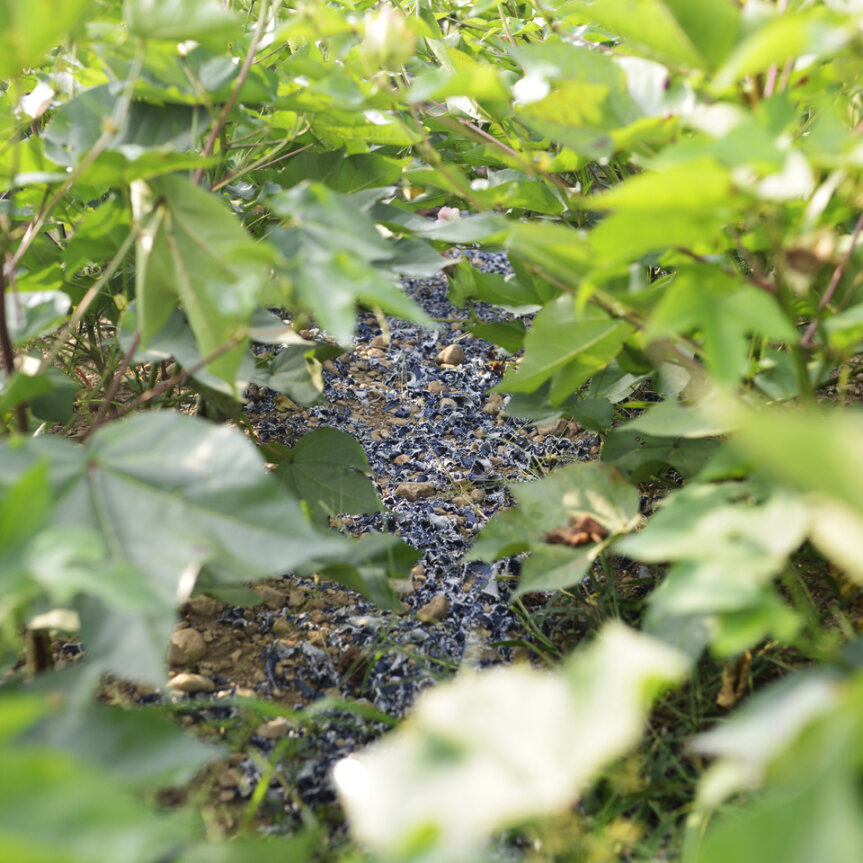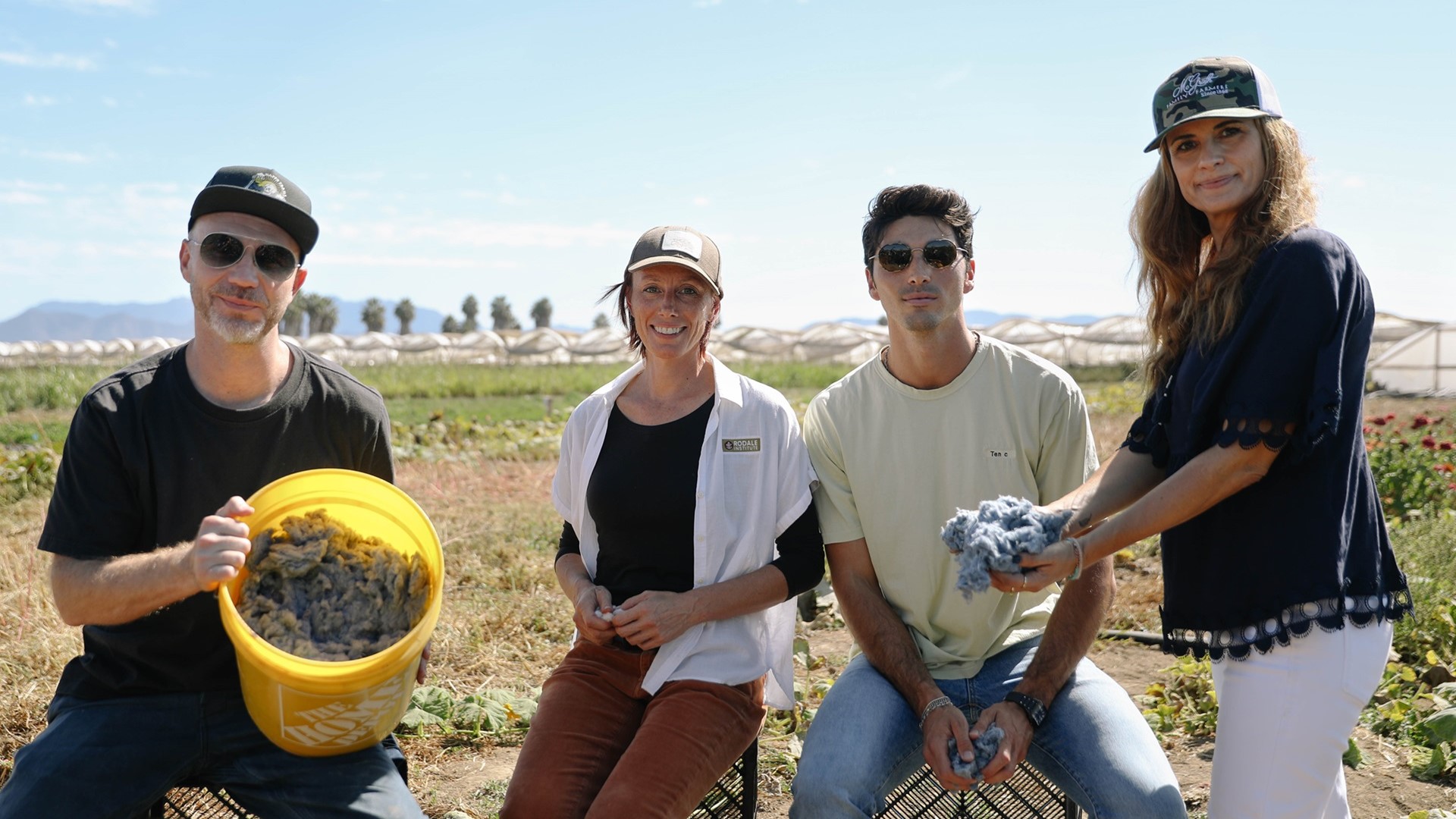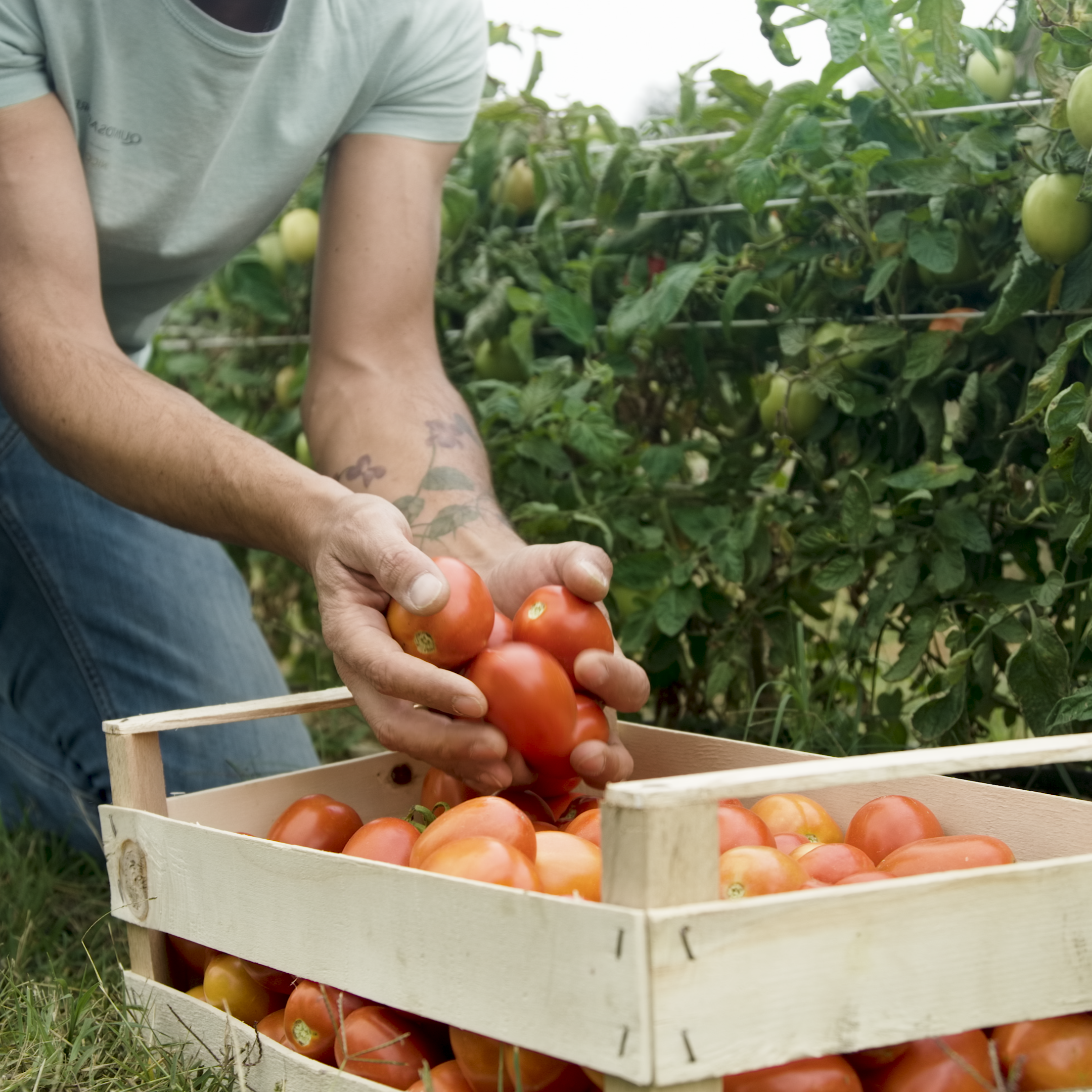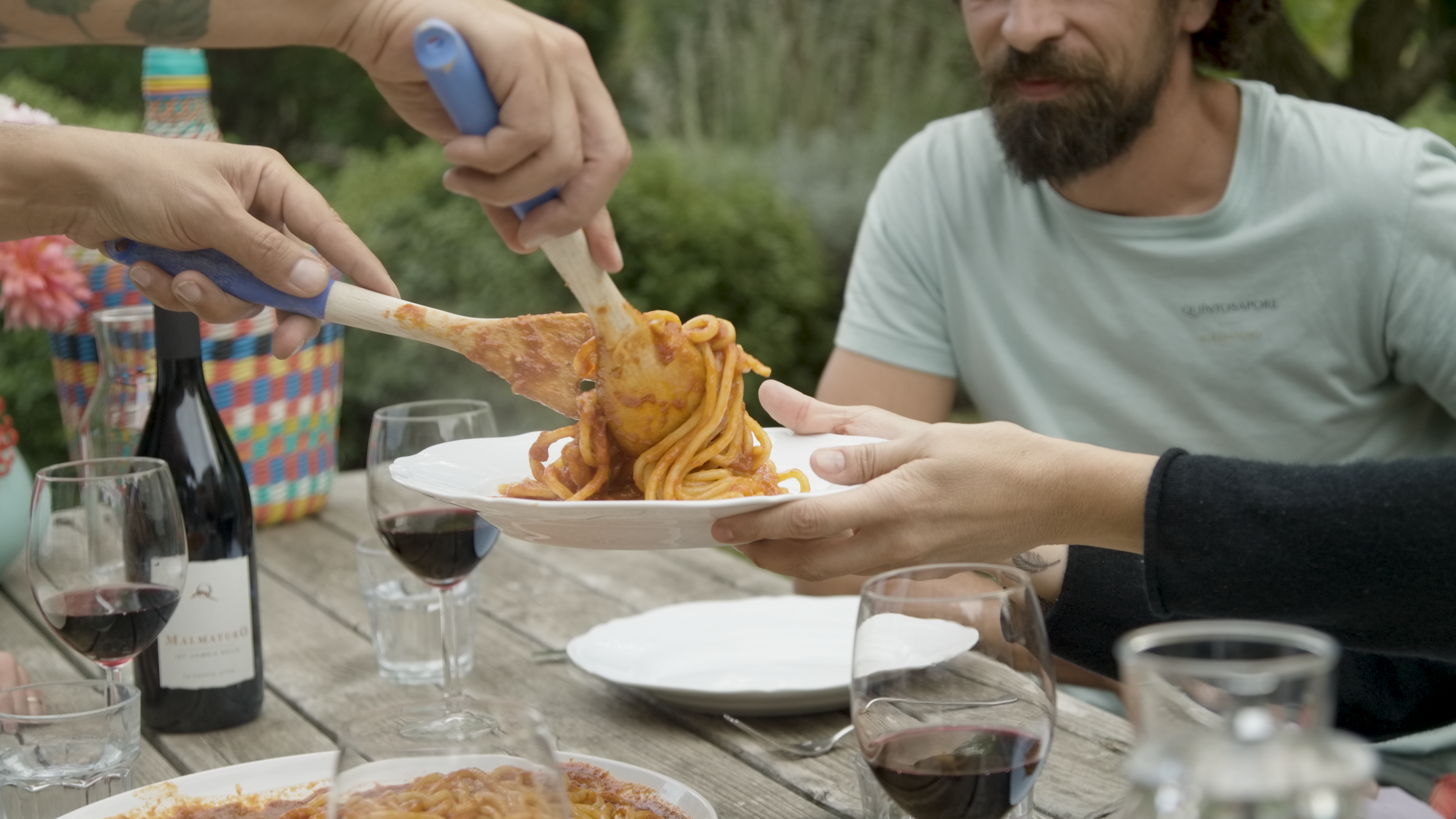At Candiani, our approach to creation has always been supported by credibility. And the journey with COREVA™ technology has been no exception. We wanted to test and experiment with this technology to practice what we preached and explore the full potential of COREVA™, the world’s first plant-based stretch denim fabric.

Our journey began in a laboratory in 2020, collaborating with Innovhub to subject COREVA™ samples to rigorous testing, under the test methods of ISO 16929:2019 and EN 13432:2000 Annex E/AC:2005.
The results were clear: after 12 weeks, 98.1% of the COREVA™ sample’s original mass had decomposed. Regarding the compost ecotoxicity test, the mung bean and barley seeds planted in the COREVA™ compost germinated and grew successfully with no inhibiting effects on the plants.
Eager to see COREVA™ in action beyond the lab, we partnered with the Rodale Institute California Organic Center in 2022 and prepped a small plot of Candiani Blue Seed Cotton for our field test.
We mixed COREVA™ fabric scraps into the soil and observed COREVA™'s impact on soil health and plant growth. The yearlong study showed no adverse impacts to soil, on the contrary showed enhanced soil respiration and consistent moisture levels. While merely an experiment, it made us wonder about the potential of COREVA™: could this stretch denim fabric support soil in drier climates? This connection to regenerative agriculture got our team even more excited.

Continuing our exploration, we returned to our home country and teamed up with Quintosapore, an innovative farming project nestled in the beautiful Umbrian countryside. Together, we wanted to explore the intersection of regenerative farming, soil health, circular fashion, and food. And what better way to trial this, than with the beloved Italian staple-tomatoes.
The tomatoes were grown in soil composted with COREVA™ offcuts. Tests were conducted before, during, and after the growth of the tomatoes, by the Italian chemistry lab Ars Chimica Laboratorio Chimico. They compared soil with and without COREVA™ looking for changes in chemicals, heavy metals, colorants, and overall health.
The results? All the parameters aligned perfectly with the original soil tests, indicating the addition of COREVA™ didn’t alter the normal chemical composition of the soil. The farmers of Quintosapore noticed similar water moisture results in the soil, as had been seen in the previous experiment.
What does this mean for regenerative agriculture and fashion, against a backdrop of a hotter and drier climate? This is a topic we want to explore more.

The fact that there haven’t been any differences in the soil where COREVA™ is planted, and instead could be helping with water retention is incredibly exciting for the team at Candiani, and makes us wonder: could we imagine a future where we eat what we wear? Stay tuned as we continue to explore circularity, compostability, and COREVA™ and build the future of a fully regenerative fashion together.
Oh, and the tomatoes? We made a truly delicious pasta sauce!
